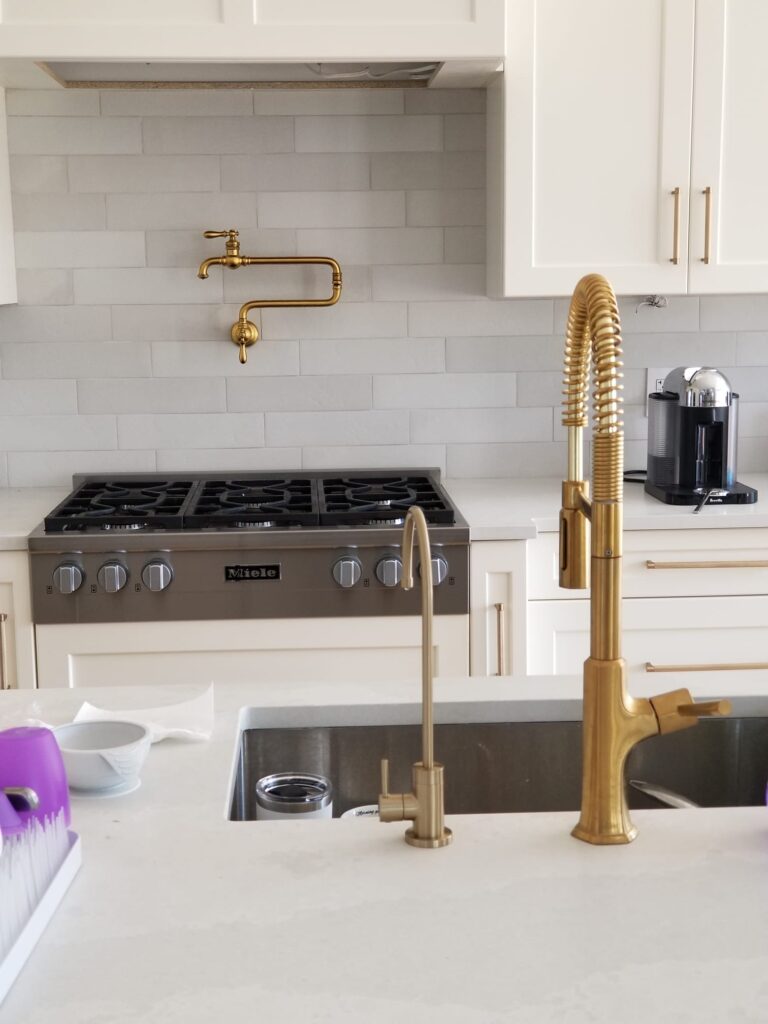Refrigerator Repair: What You Need to Know
Refrigerators are essential appliances in every home, but like all machines, they can develop issues over time. Whether your fridge isn’t cooling properly, making strange noises, or having trouble with the ice maker, timely repairs are key to preventing further damage. Understanding how to identify common problems and when to call a professional can help you maintain your refrigerator’s performance and extend its lifespan. In this guide, we’ll cover common refrigerator issues, maintenance tips, and expert advice on when to seek repairs.
Refrigerator Problems and How to Fix Them
A variety of problems can affect refrigerators, ranging from minor inconveniences to more serious malfunctions. Here’s an overview of the most common issues and how they can be resolved.
Not Cooling Properly
One of the most common issues homeowners face is a refrigerator that’s not cooling properly. This can be caused by a variety of factors, such as a dirty condenser coil, malfunctioning thermostat, or a blocked air vent. Start by checking the thermostat settings and cleaning the condenser coils. If the issue persists, it may be a more serious problem like a faulty compressor or evaporator fan that requires professional attention.
Water Leaks
If your refrigerator is leaking water, it could be due to a clogged defrost drain, a broken door seal, or an issue with the water supply line. Inspect the defrost drain for any blockages, and check the door seal to make sure it’s intact. If the problem is related to the water line, you might need to replace a damaged hose or valve.
Strange Noises
Refrigerators can make a variety of noises, but if the sounds are unusual or disruptive, it might indicate a problem. A humming or buzzing noise could be normal, but if you hear rattling, grinding, or high-pitched sounds, it may signal issues with the condenser fan, evaporator fan, or motor. Inspect the fans and motors for any obstructions or signs of wear, and replace any faulty parts.
Frost Build-Up
Excessive frost or ice build-up in your refrigerator can be caused by a faulty door seal, blocked air vents, or a malfunctioning defrost heater. Inspect the door seals to ensure they’re closing properly, and check for any obstructions in the air vents. If the issue persists, the defrost heater or thermostat may need to be replaced.
Ice Maker Problems
If your refrigerator has an ice maker, it may stop producing ice for several reasons. A frozen water line, faulty water filter, or malfunctioning ice maker motor could be the culprit. Start by inspecting the water line for any blockages, and replace the water filter if necessary. If these steps don’t solve the issue, the ice maker itself may need to be repaired or replaced.
How to Maintain Your Refrigerator for Longevity
Proper maintenance is essential for keeping your refrigerator running efficiently and extending its lifespan. Regular cleaning, inspections, and basic upkeep can prevent many common issues.
Cleaning the Condenser Coils
Over time, dust and dirt can accumulate on the condenser coils, which can reduce the refrigerator’s efficiency and cause it to overheat. To clean the coils, unplug the refrigerator and use a vacuum or coil brush to remove debris. Clean the coils at least twice a year, or more often if you have pets.
Checking the Door Seals
A faulty door seal can cause cold air to escape, making your refrigerator work harder to maintain the right temperature. To check the seals, close the door on a piece of paper or a dollar bill. If you can pull it out easily, the seal may need to be replaced. Clean the seals regularly with warm, soapy water to keep them in good condition.
Defrosting the Freezer
If your freezer starts accumulating too much frost, it can affect the refrigerator’s performance. Defrost the freezer when ice build-up reaches around a quarter of an inch. Most refrigerators have an automatic defrost function, but it’s still important to monitor the build-up and take action when necessary.
Leveling the Refrigerator
A refrigerator that is not level can cause issues with cooling efficiency and may put unnecessary strain on the compressor. Use a level to ensure that the refrigerator is sitting evenly, adjusting the legs if needed. A level fridge will help maintain proper airflow and temperature regulation.
Replacing Water Filters
If your refrigerator has a water and ice dispenser, it’s important to replace the water filter regularly. A clogged or old water filter can affect water flow and cause strange tastes or odors. Replace the filter every six months or according to the manufacturer’s instructions.
When to Call a Professional for Refrigerator Repair
While regular maintenance and basic repairs can be handled by homeowners, there are situations where professional help is necessary. Here’s when you should contact a refrigerator repair specialist.
Unresolved Cooling Problems
If your refrigerator is still not cooling properly after cleaning the condenser coils and adjusting the thermostat, it could indicate a problem with the compressor, evaporator fan, or other internal components. A professional technician can diagnose the issue and repair or replace the faulty parts.
Electrical or Power Issues
If your refrigerator isn’t turning on or is intermittently losing power, it could be an electrical problem. A malfunctioning thermostat, faulty power cord, or wiring issue can cause power interruptions. An electrician or refrigerator technician should handle these types of repairs to ensure safety and proper functioning.
Complex Ice Maker Repairs
While some ice maker issues can be fixed by homeowners, more complex problems such as a broken motor or malfunctioning water valve require professional assistance. An expert will have the tools and knowledge to safely repair or replace the ice maker without damaging the appliance.
Severe Leaks
If your refrigerator is leaking a significant amount of water, and simple fixes like clearing the drain or replacing the door seal don’t solve the issue, it’s best to call a professional. A refrigerator repair technician can identify the source of the leak, whether it’s a problem with the defrost system, water line, or internal components, and provide the necessary repairs.
Frequently Asked Questions
Why is my refrigerator making a loud noise?
Loud noises can be caused by various factors, including a malfunctioning condenser fan, evaporator fan, or compressor. The sound may also be due to ice build-up or an obstruction in the fan blades. Check for obstructions and contact a technician if the noise persists.
How often should I clean the condenser coils?
It’s recommended to clean the condenser coils every six months to ensure proper cooling efficiency. If you have pets or notice that the refrigerator is running hot, you may want to clean the coils more frequently.
Can I repair my refrigerator myself?
Some minor repairs, like cleaning the condenser coils or replacing a water filter, can be done by homeowners. However, for complex issues like compressor failure, electrical problems, or refrigeration system repairs, it’s best to hire a professional technician.
Why is my refrigerator freezing everything inside?
If your refrigerator is freezing food in the fridge section, it could be due to a malfunctioning thermostat, temperature control, or defrost system. Check the settings and consult a technician to ensure everything is functioning correctly.
Final Verdict
Refrigerator repair and maintenance are essential for ensuring that your appliance runs smoothly and efficiently. Regular cleaning and inspections can prevent many common problems, while professional repairs are necessary for more complex issues. By understanding when to take action yourself and when to call in an expert, you can extend the life of your refrigerator and avoid costly repairs in the future.






